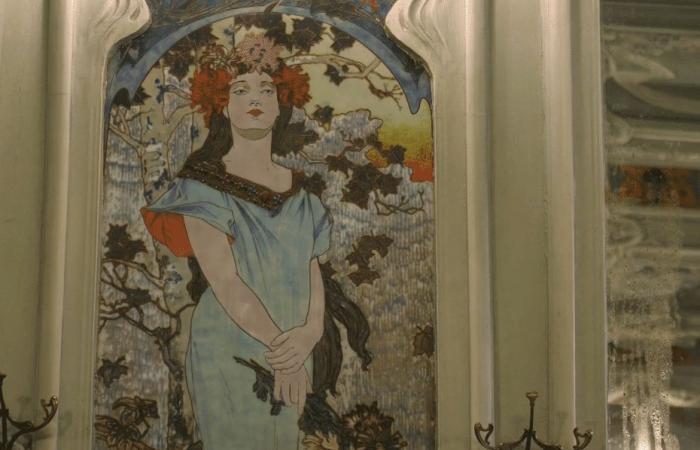We know broths for cooking, but also for decoration. Art deco or art nouveau, these restaurants, more than a century old, have retained their charm. A documentary invites us to rediscover them.
The essentials of the day: our exclusive selection
Every day, our editorial team reserves the best regional news for you. A selection just for you, to stay in touch with your regions.
France Télévisions uses your email address to send you the newsletter “The essentials of the day: our exclusive selection”. You can unsubscribe at any time via the link at the bottom of this newsletter. Our privacy policy
It's a journey through time that awaits the customer who comes to sit down in one of the capital's brothels. Amid the large mirrors of Bouillon Julien, which multiply the space and diffuse light into every corner, wonder is part of the ritual.
Pascal Le Bihan is general director of Bouillon Julien, a treasure of classified Art Nouveau style historical monument on October 21, 1997. He looks back on the creation of the establishment in 1905 by the architect Louis-Édouard Fournier : ” The idea is to do what was done at the time, that is to say popular catering in an exceptional setting. The architect will surround himself with the best craftsmen with the cabinetmaker Majorelle who will build the bar in mahogany wood. He will ask Trézel for the four glass panels which represent the four seasons. And Segau for the two panels at the back of the restaurant which represent two peacocks. “
The theme of nature, women and the animal kingdom is omnipresent in this establishment, expressed in the typical curves of Art Nouveau. Bouillon Julien changed its name in 1938 after having been a Chartier broth. A stone's throw from the Latin Quarter, there is another historic gem: Bouillon Racine.
Its owner, Luc Morand, insists on the ingenuity and economy of means which characterize this decor: ” The wood is painted wood, they used cheap wood, there were plenty of carpenters, there were thousands of craftsmen in Paris. Mirrors, you had people passing in the street offering you mirrors like windows. The entire lower part is the same tiles used in the metropolitan of the time. Everything has been designed to be beautiful and inexpensive. “
Certain classified or protected establishments stand out as true masterpieces both architecturally and ornamentally, and arouse the pride of their owners.
- -





